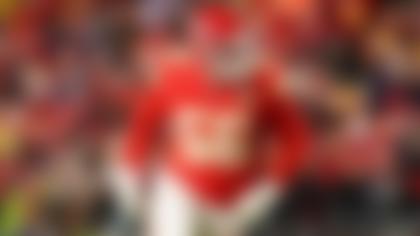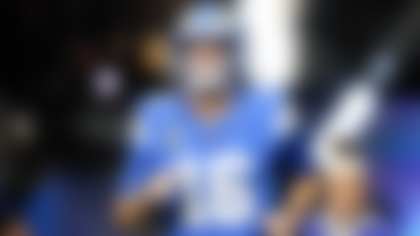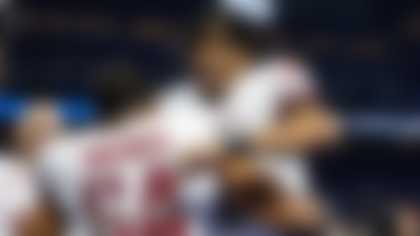PHOENIX -- On the second morning of the new millennium, Pete Carroll asked his boss, New England Patriots owner Robert Kraft, to come to his office and answer a very pointed question. That Sunday shaped up as a day of reckoning for Carroll, who a few hours later would guide the 7-8 Pats to a 20-3 victory over the Baltimore Ravens in their regular-season finale -- a game he had good reason to believe would be his last as Kraft's coach.
Reluctantly, Kraft gave Carroll the bad news: By that time tomorrow, the office would no longer be his.
"I knew it was coming," Carroll recalled in an interview that will air Sunday on "国产外流网GameDay Morning," shortly before he coaches the Seattle Seahawks against his former team in XLIX. "So I kind of got him in my office and asked, 'Come on. Tell me, you know. I want to know now, so that I can enjoy this day and make the most of this day. Let's not wait 'till later.'
"And he obliged, which I thought was really gracious of him, because I think that was not his plan. But it made for a big day. We won our last game. We wound up 8-8 and got out of there, you know. And so, I thanked him for that."
It turned out to be a move upon which Carroll and Kraft, who've maintained a friendly relationship throughout the ensuing 15 years, could each look back with a measure of gratitude.
Stung by his dismissal, Carroll reshaped his coaching philosophy during his yearlong sabbatical from football, and he credits those changes with the massive success he has since enjoyed -- including a pair of national championships at USC, and the prospect of hoisting the Lombardi Trophy on Sunday night for the second consecutive season.
Kraft, meanwhile, revamped his approach to ownership, ultimately affording Bill Belichick, the man he hired to replace Carroll, many of the coaching indulgences for which his predecessor had unsuccessfully campaigned. And with Belichick preparing to coach the Pats in a for the sixth time, and gunning for his fourth ring, it's tough to question the owner's decision to dismiss Carroll after a 28-23 three-year run -- painful as it might have been at the time.
"It was the toughest thing I've ever done in my business career," Kraft told me earlier this week. "Pete's one of the greatest guys, just a terrific guy. He was giving us his best. And the way I had it set up at the time, I probably did it in a way that didn't allow Pete to shine."
At the time, Carroll felt hamstrung by a lack of input into front-office decisions. He and Bobby Grier, the team's vice president of player personnel, seldom acted in concert, and Kraft typically erred on the side of Grier, his de facto general manager.
The disconnect was palpable: Grier drafted 27 players while running the front office during Carroll's tenure, only three of whom started in the coach's final game. A few days before Carroll's dismissal, Grier publicly criticized the coach, saying the players he'd drafted would have played better if they'd been used more.
Kraft fired Grier after the 2000 draft, replacing him with then-assistant director of player personnel Scott Pioli, who had joined his close friend Belichick in defecting from the New York Jets three months earlier, in the wake of Bill Parcells' decision to move to the front office.
When Kraft purchased the Patriots in 1994, he had inherited Parcells, who'd already coached the New York Giants to a pair of triumphs. Parcells habitually lobbied the owner for more influence over front-office decisions, leading to a tense breakup that marred the owner's first of seven appearances, in January of 1997 which came after a week dominated by talk of the coach's impending departure.
Parcells took over as the Jets' coach the following month, and Kraft turned to Carroll, who'd had a one-and-done head-coaching stint with the Jets (going 6-10 in 1994) before serving as the San Francisco 49ers' defensive coordinator for two highly successful seasons.
Carroll guided the Patriots to the postseason in each of his first two campaigns, getting bounced in the Divisional Round of the 1997 season after a first-round victory and losing on Wild Card Weekend in '98.
"We went from a team that was in the to going to the divisional round, and then the wild card, and then we went to 8-8," Kraft said. "The problem for Pete coming into our situation was we had been in a , we were very close ... and it looked like our team was spinning down each year, even though he did an excellent job. So my perspective was, 'Where are we going?' We were trying to build a privately financed stadium. We had a lot of pressures. And you've got to have the perspective of the time. It's just not a black-and-white decision."
In a sense, Kraft's great personal regard for Carroll worked against the coach's case for continued employment -- something the owner, in retrospect, realized was flawed reasoning.
"He's a wonderful guy to be around," Kraft said. "But I think also what I couldn't appreciate as much at the time is that Pete's style was so pleasant and fun for me that I just wondered if it could ever work in the NFL, just knowing that there were a lot of young men coming in with big-moneyed contracts. And I felt that, in the end, they needed tight discipline and restrictive operational business. And I just felt that he was probably, not too loose but whatever the right word is ... and that's all I'd known.
"Now, I see, he lets guys flourish and be themselves, but still keeps the discipline. And he's just done an outstanding job."
Kraft also believes that, because of his experiences with Parcells, he didn't give Carroll a chance to do his job to the best of his ability.
"I had come off the previous situation with the previous coach, who was very good, but he was a control freak -- and every other business we're in, we had checks and balances," Kraft said. "So getting a new coach after him, we set up checks and balances."
(In an interview Tuesday with 国产外流网Network's Melissa Stark, Kraft expounded, saying, "I didn't give Pete all the power he should have had. I was also evolving as an owner, understanding what could be best. And at the time, I didn't give Pete enough freedom to bring in the players he wanted, and I think it hurt him.")
Ultimately, however, the failed stint in New England helped Carroll understand what kind of coach he wanted to be -- and what kind of structure he needed to facilitate success.
"I had no plan for that year (off, after being fired)," Carroll said. "But it wound up being one of the most important years of my football-coaching career, in that it hit me along the way that I needed to restructure and kind of reformat the philosophy and the approach to really get at the heart of what's really true to myself, and so that I can do a really good job with representing whatever it is in the leadership position that we do.
"All of that came together in a big way. And then, I was able to kind of mold it and shape it in the years at S.C. to become the approach and the concept and the culture that we try to create here in Seattle."
As he evolved into one of the top coaches in his profession, it was not lost on Carroll that Kraft implemented some of the changes for which Carroll had advocated -- and reaped the benefits as Belichick and Pioli built the Patriots into the league's preeminent power.
"Sure (he) did," Carroll said of Kraft, smiling. "And (maybe I helped) in some small way. I remember talking to Robert a lot about (giving the coach more input) and, you know, he wasn't a football guy. He was a great business guy, and a great community guy. And I think he took the right step to step back and let Bill do what he's so uniquely qualified to do -- and in that he supported a historic run.
"I really admire the job that not just Coach Belichick has done, but that Robert Kraft and his family have done and the decisions that they made to let Bill do what he's capable of doing. I think it's a great illustration of a way to structure an 国产外流网organization, where you let the coach really run the thing. I followed it very closely."
This is not to say that Kraft gave Belichick the control the coach now enjoys instantaneously.
"We kept the same organization in place when Bill took over," Kraft said. "But over time, as he kept producing -- look, the second year he was with us, he won a -- but I would say over the next five years, as things evolved, I kept giving Bill more and more autonomy. And we won three s in that period. And then I've always checked to be sure in my own way that he doesn't abuse the power he has and his work ethic is very, very good.
"Once a coach has earned it ..."
Carroll, in turn, earned the opportunity to enter the 国产外流网on his terms after restoring the Trojans into a collegiate powerhouse. He turned down numerous overtures from 国产外流网teams during his nine-year run at USC, finally bolting when .
After signing a five-year, $33 million deal to coach the Seahawks, Carroll became part of the ongoing interview process for general manager candidates. In the process, he bonded with John Schneider, a Green Bay Packers personnel executive with whom he had no prior relationship -- an organic connection that facilitated a sublime partnership.
"Tod Leiweke watched it happen and said at the time, 'This is going to be the ultimate collaboration,'聽" Schneider recalled Tuesday. "We spent a lot of time together those first few months and learned each other, and Pete finally told me, 'We're going to make this the best football marriage the 国产外流网has ever seen.' I was like, 'Alright!'
"And if you go back into his history, and in mine, we both understood that if you don't have those things in place -- if you don't have the relationship between the coach and the GM right, and the support of ownership -- it's much harder to succeed."
The balance of power between Carroll, who has contractual control of the 53-man roster, and Schneider, who is in charge of football operations and controls the 90-man offseason/training-camp rosters, has been part of the Seahawks' formula for success.
"Paul Allen and Tod Leiweke, between the two of them, they convinced me that we would have the freedom to do this the way we wanted to do it," Carroll said. "And it wouldn't be a typical situation where you would be run by the owner, by the general manager ... I'd had plenty of opportunities to talk about (国产外流网jobs) with people, and I wasn't even interested at all. And really Tod, representing Paul, made that clear to me, that they were going to clear the path. And that was the only way I would ever think of leaving USC.
"I loved USC, and it was the time of my life at the time. But this is the highest level of competition. This is where you get pressed the most to show whether you have it or whether you don't. And I couldn't pass up the competition of all of that. So when given the right opportunity with the right formula, I trusted them, and then we went about putting that together with John Schneider -- and this is what we've done with that opportunity."
As for the opportunity to compete for a championship against the franchise that once fired him -- well, Carroll simply calls it "fun." He remains fond of Kraft, whom he called to congratulate five days after . The two men also caught up in person between their teams' Media Day sessions on Tuesday.
"He's been really gracious," Carroll said of Kraft. "You know, he still fired me, but that's the way it goes. And I understood what happened at the time and took it in stride and went about my business to get it right."
Said Kraft: "I'm very happy for Pete. He's just done an outstanding job. It's pretty cool for me to think that in 21 years I've hired two coaches, and now they're gonna be facing one another in the biggest game there is."
Follow Michael Silver on Twitter .




